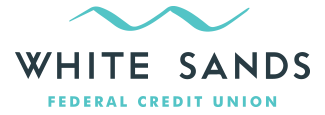Your first paycheck, and what you should know

It’s a rite of passage into adulthood – your first paycheck. It doesn’t matter whether you are a teen with an after school job or a recent college graduate, you first paycheck always seems to have some surprises. Here is a brief review of the important information on the statement of your first paycheck, and what you should do with all that money.
What’s on the pay statement
Pay period: This is the time period your pay covers, most often a specific week, two-week period or month.
Gross pay or earnings: This is what your employer paid you paid. It is your hourly wage times the number of hours you worked in the pay period. Or if you are a salaried employee, it is your annual salary divided by the number of annual pay periods.
Taxes: This is the amount of federal, state and local income taxes you paid. Your employer automatically deducts them from your pay and sends your tax payment to the various governments. The tax rate is based on the W-4 form you filled out when you were hired.
Social security or FICA (Federal Insurance Contributions Act) and Medicare contribution: This is your contribution to your social security account, which will help support you when you are retired, and Medicare, which provides health insurance for your retirement years. You contribute 6.2% of your gross pay (minus any health insurance premiums) for social security and 1.45% for Medicare. Your employer kicks in the same amount.
Deductions: Here you will see more money taken from your gross pay for things like health and dental insurance, and contributions to your 401K plan. You might also see other voluntary deductions such as for a life and disability insurance program, or a Flexible Spending Account (FSA).
Net pay: This is what you get to keep. If you have direct deposit, this is how much was automatically deposited to your checking or savings account. If not, this is the amount of your actual check.
Direct deposit
The first thing you should try to get from your new employer is direct deposit. If you can have your paycheck directly deposited to your checking or savings account, life will get a little easier. If your employer doesn’t offer direct deposit and insists on issuing you a paper check, you can always take advantage of a mobile deposit app. Here’s a link to ours.
What to do with that money?
Everyone’s situation is different. Some people may use their entire net pay just to meet their living expenses, such as rent, utilities, food and transportation. However, to develop healthy financial habits, it is wise to carve out some money from your paycheck for your future. Here are three ways of doing that.
401K: If your employer offers a 401K plan, it is highly recommended you participate as soon as you are eligible. Some employers require new employees to wait 6 months or a year to participate, but do so as soon as possible. This is a savings account that allows you to have an income when you retire. Even though your retirement may seem to far in the distant future to worry about now, it really isn’t. It takes a large sum of money to retire without living in poverty. Now is the time to start saving for this life stage.
The beauty of a 401K plan is whatever you contribute is deducted before your government income taxes are assessed. You end up being taxed on a lower amount if income, and the taxes you pay will be less. Contribute whatever you can to your 401K program, but the more you contribute, the lower your income taxes will be and the better off you will be in your retirement. Finally, some employers will match whatever you contribute, up to a limit, such as 3% or 4%. Make it your goal to contribute at least as much as your employer matches you – that is literally free money!
IRA: If your employer doesn’t offer a 401K or similar retirement plan, you can still save for your retirement in an individual retirement account (IRA). TA traditional IRA allows you to contribute pre-tax money (again, lowering the amount of income tax you pay). A Roth IRA allows you to contribute after- tax funds, with the benefit of not having to pay taxes when you use the money as income in your retirement.
Emergency fund: Although it will take time, most financial experts recommend building an emergency fund. This is a savings account that you use only to avoid going into debt for a cost you just can’t avoid, such as job loss, or medical crisis. You can start small, but if you save consistently you will likely have a sufficient emergency fund in a few years. Aim to have six months of living expenses in your emergency fund. Use direct deposit to have a regular amount diverted from your paycheck to your emergency fund account. Or use your credit union’s automatic transfer function to transfer a set amount every month from your checking account to your savings account.
Reward yourself.
Finally, if you have any money left over after living expenses, deductions and taxes, absolutely set money aside for the fun stuff in life. Even if it is $5 or $10 a paycheck, it’s nice to have a little on the side to buy something within your means. Sometimes that is what makes earning a paycheck worthwhile.
Contact Us
Call Center:
(575) 647-4500 or
Hours of Operation:
Monday thru Friday, 8 am-5 pm
Mailing Address:
P.O. Box 99
Las Cruces, NM 88004
Routing & Transit # 312276470
Federally Insured by NCUA
Your savings federally insured to at least $250,000 and backed by the full faith and credit of the U.S. Government. National Credit Union Administration, a U.S. Government Agency.
Equal Housing Lender
We do business in accordance with the Federal Fair Housing Law and the Equal Credit Opportunity Act.
White Sands Federal Credit Union is committed to providing a website that is accessible to the widest possible audience in accordance with the WCAG 2.0 standards and guidelines. We are actively working to increase accessibility and usability of our website to everyone. If you are using a screen reader or other assistive technology and are encountering problems using this website, please contact us at 575-647-4500 or 1-800-658-9933. Please provide the location of the inaccessible information. All products and services available on this website are available at all White Sands Credit Union branch locations.

